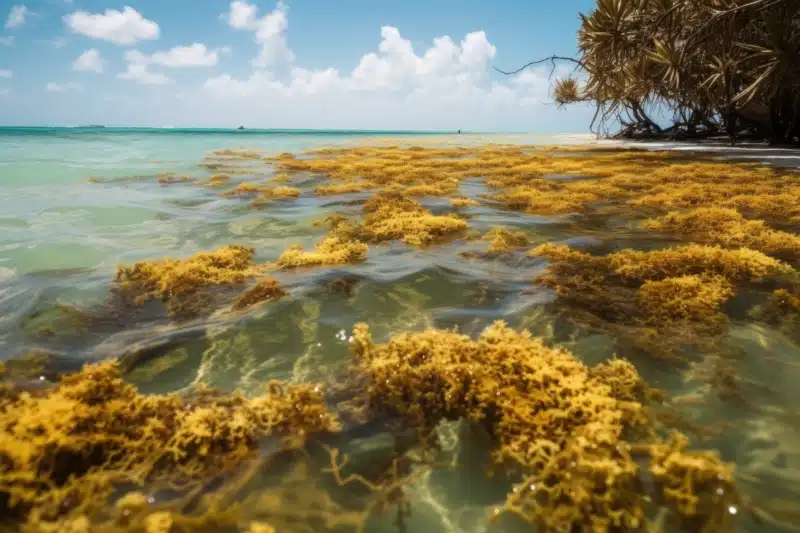Originally Posted on OneGreenPlanet.com
Florida’s beautiful coastline has lately been under assault from an unexpected invader: Sargassum. This brown seaweed, which floats freely across the Atlantic, has been washing ashore in record amounts. While the pungent odor and tangled mess are immediate nuisances, Florida Atlantic University researchers warn of a more serious concern – flesh-eating bacteria linked with ‘leaky gut syndrome’. Sargassum itself isn’t the villain. This seaweed reproduces on the water’s surface, aided by air-filled structures that provide buoyancy. It originates in the Sargasso Sea, an area of the Atlantic Ocean bounded by four prevailing ocean currents. On its own, Sargassum provides essential habitats, food, and breeding grounds for numerous marine species. The trouble begins when this seaweed meets Vibrio bacteria and microplastic debris in the ocean, sparking a dangerous ‘pathogen storm’.
The Vibrio bacteria contained within the Sargassum has the potential to cause various symptoms ranging from diarrhea and vomiting to more serious conditions like ear infections and wound infections. Researchers discovered that the bacteria carry ‘zot’ genes, which produce toxins damaging the intestines and potentially causing ‘leaky gut syndrome’.
If a fish consumes plastic contaminated with Vibrio bacteria, the toxins can damage the intestines, leading to a leaky gut, which releases nutrients stimulating the growth of more Sargassum and other organisms. Vibrio bacteria thrive in warm, brackish seawater and can latch onto microplastics, posing serious risks to individuals with open wounds.
A concern is that as the quantity of Sargassum and plastic marine debris rises during the summer months, so does the risk to beachgoers and people living near the shore, particularly those with respiratory problems. The decomposing Sargassum releases hydrogen sulfide, a gas that can cause coughing, wheezing, and shortness of breath, particularly in asthmatics and people with COPD.
Dr. Maxcie Sikora of AllerVie Health advises individuals with respiratory issues to take care while visiting Florida’s coast during Sargassum season, recommending the use of over-the-counter antihistamines for those who come into contact with the seaweed.
If you’re visiting the Florida coast, be mindful of Sargassum and heed local health advisories.


